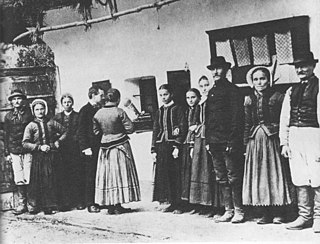
Folk music is a music genre that includes traditional folk music and the contemporary genre that evolved from the former during the 20th-century folk revival. Some types of folk music may be called world music. Traditional folk music has been defined in several ways: as music transmitted orally, music with unknown composers, music that is played on traditional instruments, music about cultural or national identity, music that changes between generations, music associated with a people's folklore, or music performed by custom over a long period of time. It has been contrasted with commercial and classical styles. The term originated in the 19th century, but folk music extends beyond that.

Funk is a music genre that originated in African American communities in the mid-1960s when musicians created a rhythmic, danceable new form of music through a mixture of soul, jazz and rhythm and blues (R&B). It de-emphasizes melody and chord progressions and focuses on a strong rhythmic groove of a bassline played by an electric bassist and a drum part played by a percussionist, often at slower tempos than other popular music. Funk typically consists of a complex percussive groove with rhythm instruments playing interlocking grooves that create a "hypnotic" and "danceable" feel. Funk uses the same richly colored extended chords found in bebop jazz, such as minor chords with added sevenths and elevenths, or dominant seventh chords with altered ninths and thirteenths.
Gospel music is a genre of Christian music. The creation, performance, significance, and even the definition of gospel music varies according to culture and social context. Gospel music is composed and performed for many purposes, including aesthetic pleasure, religious or ceremonial purposes, and as an entertainment product for the marketplace. Gospel music often has dominant vocals with Christian lyrics. Gospel music can be traced to the early 17th century.
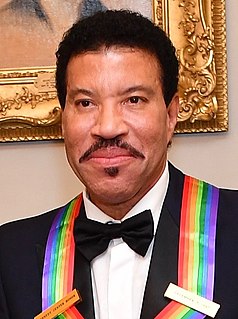
Lionel Brockman Richie Jr. is an American singer, songwriter, record producer, and television judge. He rose to fame in the 1970s as a songwriter and the co-lead singer of funk band the Commodores; writing and recording the hit singles "Easy", "Sail On", "Three Times a Lady" and "Still", with the group before his departure. In 1980, he wrote and produced the US Billboard Hot 100 number one single "Lady" for Kenny Rogers. The following year, he wrote and produced the single "Endless Love", which he recorded as a duet with Diana Ross; it remains among the top 20 bestselling singles of all time, and the biggest career hit for both artists. In 1982, he officially launched his solo career with the album Lionel Richie, which sold over four million copies and spawned the singles "You Are", "My Love", and the number one single "Truly".
Spirituals is a genre of Christian music that is "purely and solely the creation" of generations of Black Americans, which merged African cultural heritage with the experiences of being held in bondage in slavery, at first during the transatlantic slave trade—the largest and one of the most inhumane forced migrations in recorded human history, and for centuries afterwards, through the domestic slave trade. Spirituals encompass the "sing songs," work songs, and plantation songs that evolved into the blues and gospel songs in church. In the nineteenth century, the word "spirituals" referred to all these subcategories of folk songs. While they were often rooted in biblical stories, they also described the extreme hardships endured by African Americans who were enslaved from the 17th century until the 1860s, the emancipation altering mainly the nature of slavery for many. Many new derivative music genres emerged from the spirituals songcraft.

Ann Lennox is a Scottish singer-songwriter, political activist and philanthropist. After achieving moderate success in the late 1970s as part of the new wave band the Tourists, she and fellow musician Dave Stewart went on to achieve international success in the 1980s as Eurythmics. Appearing in the 1983 music video for "Sweet Dreams " with orange cropped hair and wearing a man's business suit, the BBC states, "all eyes were on Annie Lennox, the singer whose powerful androgynous look defied the male gaze". Subsequent hits with Eurythmics include "There Must Be an Angel " and "Here Comes the Rain Again".
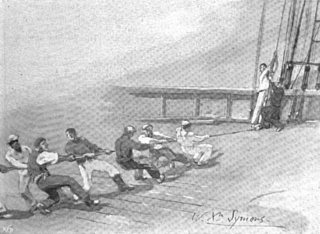
A sea shanty, chantey, or chanty is a genre of traditional folk song that was once commonly sung as a work song to accompany rhythmical labor aboard large merchant sailing vessels. They were found mostly on British and other European ships, and some had roots in lore and legend. The term shanty most accurately refers to a specific style of work song belonging to this historical repertoire. However, in recent, popular usage, the scope of its definition is sometimes expanded to admit a wider range of repertoire and characteristics, or to refer to a "maritime work song" in general.
Naomi Long Madgett was an American poet and publisher. Originally a teacher, she later found fame with her award-winning poems and was also the founder and senior editor of Lotus Press, established in 1972, a publisher of poetry books by black poets. Known as "the godmother of African-American poetry", she was the Detroit poet laureate since 2001.
Henry Nemo was a musician, songwriter, and actor in Hollywood films who had a reputation as a hipster.
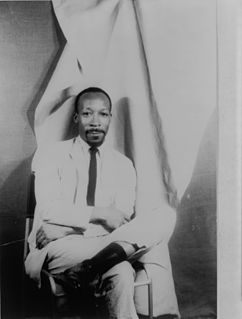
John Alfred Williams was an African-American author, journalist, and academic. His novel The Man Who Cried I Am was a bestseller in 1967. Also a poet, he won an American Book Award for his 1998 collection Safari West.
Cape jazz is a genre of jazz that is performed in the very southern part of Africa, the name being a reference to Cape Town, South Africa. Some writers say that Cape Jazz began to emerge in 1959 with the formation of The Jazz Epistles, many of whom were from Cape Town, including Abdullah Ibrahim, then known as Dollar Brand. Cape Jazz is similar to the popular music style known as marabi, though more improvisational in character. Where marabi is a piano jazz style, Cape Jazz in the beginning featured instruments that can be carried in a street parade, such as brass instruments, banjos, guitars and percussion instruments.

Slave Songs of the United States was a collection of African American music consisting of 136 songs. Published in 1867, it was the first, and most influential, collection of spirituals to be published. The collectors of the songs were Northern abolitionists William Francis Allen, Lucy McKim Garrison, and Charles Pickard Ware. It is a "milestone not just in African American music but in modern folk history". It is also the first published collection of African-American music of any kind.

The University of Pretoria is a multi-campus public research university in Pretoria, the administrative and de facto capital of South Africa. The university was established in 1908 as the Pretoria campus of the Johannesburg-based Transvaal University College and is the fourth South African institution in continuous operation to be awarded university status. The university has grown from the original 32 students in a single late Victorian house to approximately 53,000 in 2019. The University was built on 7 suburban campuses on 1,190 hectares.

Paul Van Haver, better known by his stage name Stromae, is a Belgian singer-songwriter, rapper and musician. He is mostly known for his works in the genre of the hip hop and electronic music. Stromae came to wide public attention in 2009 with his song "Alors on danse", which became a number one in several European countries. In 2013, his second album Racine carrée was a commercial success, selling 2 million copies in France The main singles from the album include "Papaoutai" and "Formidable".

"Waka Waka ", called "Waka Waka " in Spanish, is a song by Colombian singer Shakira, featuring the South African band Freshlyground. Written, composed, and produced by Shakira and John Hill, it was released on 7 May 2010 by Epic Records as the official song of the 2010 FIFA World Cup, which was held in South Africa. The song samples "Zamina mina (Zangaléwa)" by Golden Sounds and the lyrics encourage one to aim for their goals like a soldier on a battlefield.

Homeland is a 2000 album by South African singer Miriam Makeba. It was released in 2000 on CD by world music label Putumayo. It includes a duet starring Makeba and Zenzi Lee in a renovated version of Makeba's trademark hit song "Pata Pata" (1967), entitled "Pata Pata 2000". Congolese pop star Lokua Kanza also contributed to this album both as a songwriter and as a singer ("Lindelani").
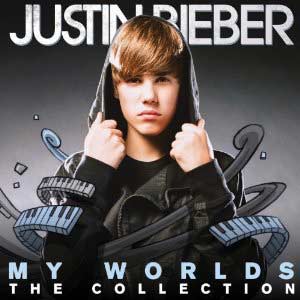
My Worlds: The Collection is the first compilation album released by Canadian singer Justin Bieber. As the international alternative to the Walmart and Sam's Club exclusive My Worlds Acoustic (2010), My Worlds: The Collection was released in numerous European countries on November 19, 2010. The album consists of two discs; the first is a slightly altered version of My Worlds Acoustic, and the second is My Worlds, a compilation itself made up of Bieber's first EP My World (2009) and his first studio album, My World 2.0 (2010). In addition, the compilation also features a new song, an inspirational ballad entitled "Pray", an acoustic version of Bieber's collaboration with Jaden Smith, "Never Say Never", and remixes of his single "Somebody to Love". The new versions of the songs were produced by Bieber's music director, Dan Kanter, his vocal producer Kuk Harrell, and also record producer Rob Wells. While most professional reviewers complimented the set, several thought that its release was unneeded. The album charted moderately in Europe, reaching the top half of several countries' album charts.
"Oh, Freedom" is a post-Civil War African-American freedom song. It is often associated with the Civil Rights Movement, with Odetta, who recorded it as part of the "Spiritual Trilogy", on her Odetta Sings Ballads and Blues album, and with Joan Baez, who performed the song at the 1963 March on Washington. Baez has since performed the song live numerous times, both during her concerts and at other events. The song was first recorded in 1931 by the E. R. Nance Family as "Sweet Freedom".
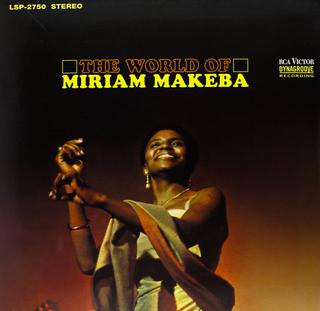
The World of Miriam Makeba is the third album by Miriam Makeba released by RCA Victor. It charted at #86 on the US album chart. Hugh Masekela was credited as the conductor.













